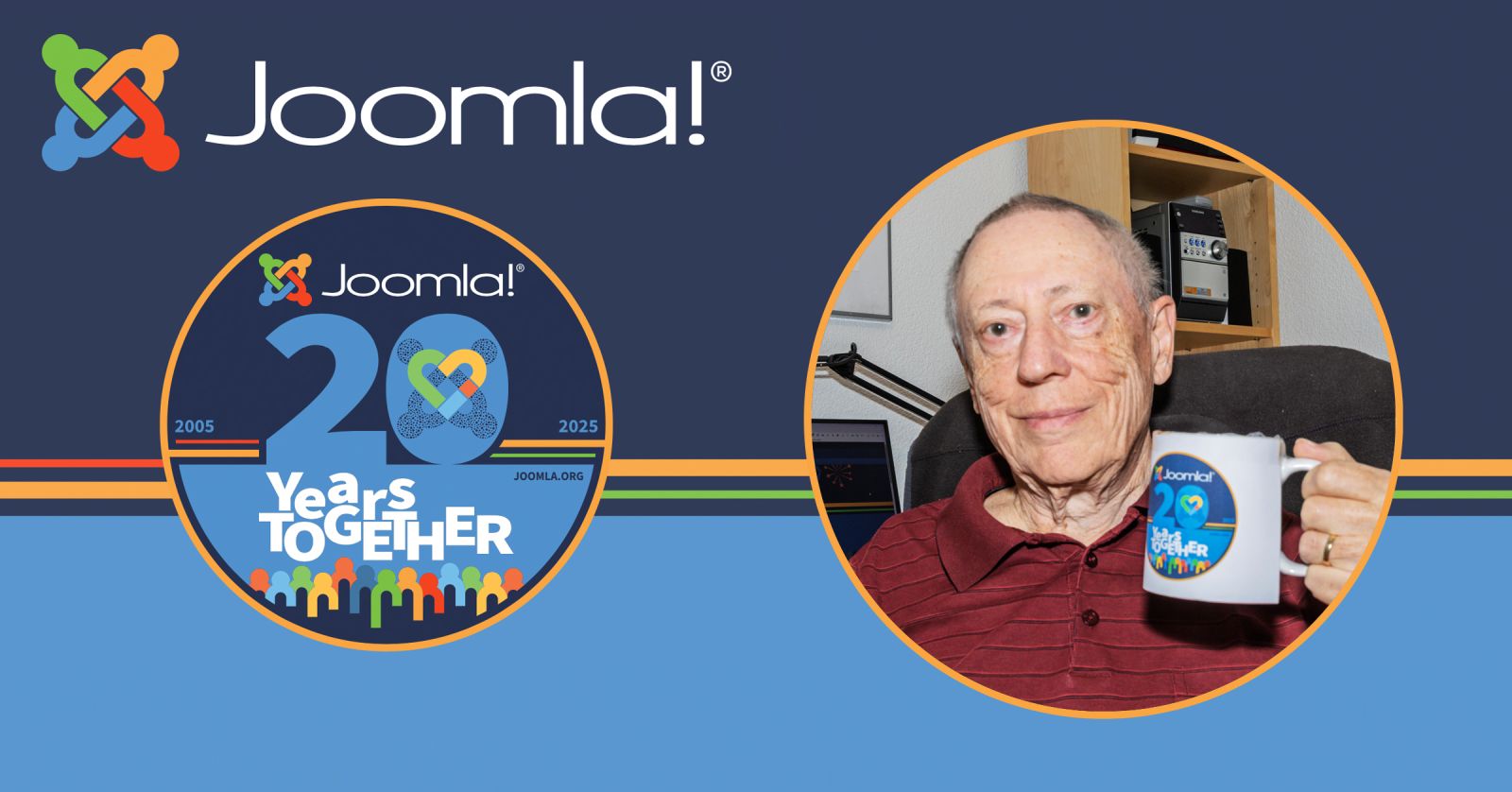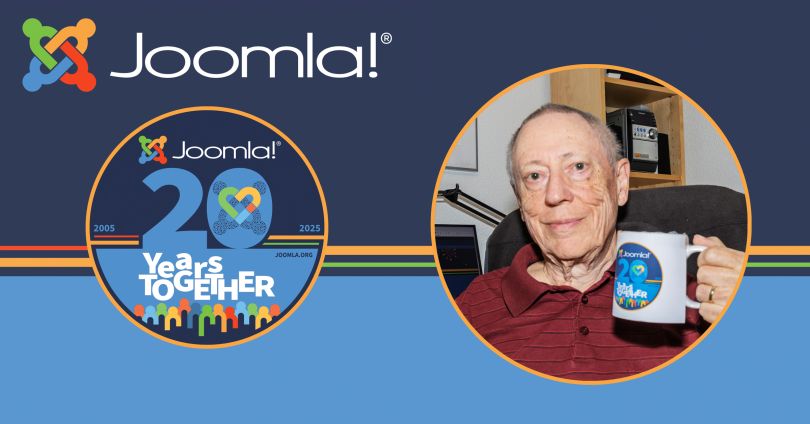
Joomla in Faces. Chris Hoefliger (JUG organiser)

- Published: 07 November 2025
- Last modified: 07 January 2026


Welcome to our interview. We're thrilled to be joined by Chris Hoefliger, the Joomla volunteer and JUG organiser. Based near Zürich, Switzerland, Chris not only runs his own web agency but is also an active member of the German-speaking Joomla community. You can find him actively sharing his knowledge in Joomla forums in both Switzerland and Germany. Furthermore, he is the founder of the Joomla User Group Zürich, where he works to keep the local community informed by publishing news, tutorials, and translating key articles from the Joomla community magazine.
1. A few words about yourself
Hi, I’m Chris. In a former life, I was a broadcast engineer and was building complete television studios. These days, I’m running a small (one-man-show) web agency in a suburb of Zürich, Switzerland. My company was founded in January 2011, so it will turn 15 next January.
2. Your first encounter with Joomla: how did it happen?
Let me think. I had a brief encounter with Mambo back in the early years of this century, but that was only in a role as content contributor for an Australian BOINC group. I was at that time starting to take an interest in web sites, and began working on my own hobby site, but that happened completely without any CMS, everything was hand-written with an editor using HTML and CSS. That was back in the days when HTML 4.01 was fashionable, and Cascading Style Sheets were considered to be black magic. Later I tried Joomla, but couldn’t make head or tails of it. Mainly because I did not have the basics and had no clue of the concepts behind it. It was not until V 1.5.14 that it got me really interested, and then I finally went full steam into things. I learned a lot about Joomla by reading around in several forums, experimenting and simply trying out things. As soon as I had gathered some skills, I started actively helping others solving their problems.
3. Have you worked with other Content Management Systems besides Joomla?
Of course I played around with Wordpress, but in frankness, there’s not a single site I’ve used WP on in earnest. I’ve come in contact with Drupal and TYPO3, too, but only very superficially. I have fooled around with MS Frontpage as well, but that was rather a joke, a WYSIWYG editor, far away from any CMS. Come to think of it, I once almost had a customer who used Frontpage.

I learned a lot about Joomla by reading around in several forums, experimenting and simply trying out things.
Chris
4. How do you contribute to the Joomla community?
I try to help people who run into problems with Joomla. I am actively engaged in two of the German speaking forums, one in Switzerland and one in Germany. For a while, I was on the translating team, doing translation into German for the Joomla Documentation. An there’s Joomla Verband Schweiz, where I am a member and served on the board for some years. JUG Zürich is a local JUG, it’s my child and we have a website where I publish news about Joomla and translated selected articles of the community magazine.
5. Why do you do this? What motivates you, and what do you get out of it?
Doing web pages started as a hobby, and when I retired from my job, I started doing it in earnest, founded a company and here I am, still having fun after 16 years.
6. Could you please introduce the Joomla community in Switzerland?
I can only talk about activities in the German-speaking part of Switzerland. There have been attempts to reach out to users in other language regions, but unfortunately, they always petered out. Why there is such a lack of interest to get organised, I cannot tell, it’s a mystery to me. Awhey where I live they speak German and we Joomlers are organised in Joomlaverband Schweiz, the community I mentioned before. It’s more or less biggish JUG, but as OSM does not allow for a JUG to cover a whole country, or even all of the German speaking part of my country, we are not recognised as an official JUG. We are a relatively small community. Most members are self-employed or part-time web designers, some are hobbyists.
Some of us members would organise a JUG from time to time. And sometimes there are courses or workshops on aspects of Joomla, like the use of fields or security or then the use of an extension is being discussed.
The latter organised by Joomlaverband, the former rather loosely by a couple of members.
7. In your opinion, what should be done to attract new users to Joomla?
Joomla certainly does not have the place that it deserves in the market. It is simply not as visible as others like WordPress, Squarespace or Wix, to name just a few. The learning curve also is steeper than with clicky-pointy-smashy page builders as well. I have this dark feeling that that ship has sailed — Joomla will stay a niche CMS and will never gain a substantial market share. It is made for users that are willing to learn and want to achieve more than simply colouring a book. Having said that, there’s still hope if the J-word can be spread.
What is needed to make Joomla more visible? For first-time users: better documentation is crucial.
For better visibility; that’s a marketing thing — don’t ask me how this can be achieved. But when you hear people talking about web sites, they’re hardly ever talk about Joomla. And that’s a shame.
8. Switzerland has four official languages. How often do you need to create multilingual sites?
Most of the sites I have been doing are either one language only, or German/English. There are a few that use three languages, which would be German/English/French. I have done one site only that uses German/Italian. I have never come across a Joomla site that used Romansh, the 4th language spoken in Switzerland. I’ve seen the question asked in a forum, whether there was a Romansh language pack for Joomla. There isn’t. Somebody would have to create one, and that would mean work. Loads of. And it seems, the strain is not that heavy for such an endeavor.
Fun fact in this context: there’s a Swiss German language pack for Joomla. The caveat is — of course — if you install it, all extensions start talking in English. Simply because there are no language files in Swiss German for 3rd party extensions.
9. What is the state of the eCommerce market in Switzerland? Which online payment systems are the most popular?
I have only done very few eCommerce sites. In Switzerland, we have TWINT, a payment system only used in Switzerland, but very popular, and used by most people. It is very easy to use, paying is done by scanning a QR code and it’s also used to send money from one person to another, e.g. for sharing restaurant bills, or sending money for birthday presents and so on. NorrNext have — as far as I'm aware — a plugin for several eCommenrce extensions that work with PostFinance, another big player in the business of online payments in my country. I've never had the chance of using it, though.
10. What key advantages of Joomla would you highlight?

Joomla is a stable, secure, modern and mature CMS, and is being developed according to a clear roadmap that has being tightly followed since Joomla 4.
Chris
Joomla is a stable, secure, modern and mature CMS, and is being developed according to a clear roadmap that has being tightly followed since Joomla 4. And it’s open source. Joomla is relatively easy to set up in the first place. Creating a multilingual web site doesn't require rocket science. Joomla has custom fields that adds an extra layer of flexibility and then, of course, there’s a proper ACL. That makes it easy to have members-only sections in a web site, as well as having specific roles for content contributors.
11. What do you think needs to be improved in Joomla's infrastructure to make it even better?
I still shudder when I think of what migrating a Joomla site from one major version to the next meant in the days before version 5 appeared. That has indeed improved massively. It’s still causing problems, as extension devs often lag behind, or are no longer interested in bringing updated versions. But at least, there are warning flags when you try to migrate a site that's not ready. Not Joomla’s fault, to be sure. But when you always want to stay on the bleeding edge with your CMS, losses are to be expected. Just have a look at the Joomla Extension Directory. The number of extensions listed there has considerably dropped since Joomla 4 was first published. Some of my beloved extensions are sadly no more. Others are not ready for a migration. This is a real pain. You either have to wait migrating, or you have to look for alternatives. Some things simply cannot be done with the core alone, so even if you cut down on the use of extensions, you are more often than not forced to make use of a few.
12. Joomla is turning 20. What are your thoughts on this milestone?
I remember when we celebrated 10 years of Joomla. We were all looking forward to the next 10 years. And then the development of Joomla 4 took much longer that expected. That was a real dent into the reputation of Joomla. And when Number 4 finally came along, lots of people were surprised by the massive changes that had been done. Again, migration was a struggle. Many people I know were pissed off, and turned their back on Joomla. Not only users, but also extension devs. But then, from there on the fog lifted, the road went straight ahead, Joomla 5 came on time, Joomla 6 came as advertised. That certainly gives some confidence as to the future of Joomla.
I’m looking forward to the things that are to come during the lifetime of Joomla 6, and the future versions. Keeping all that in mind, the first half of the last Joomla-decade was nothing much write home about (even if some goodies were delivered).
All considered, when I look back to the time I first started using Joomla, I have to say that this CMS has come a long, long way indeed.







